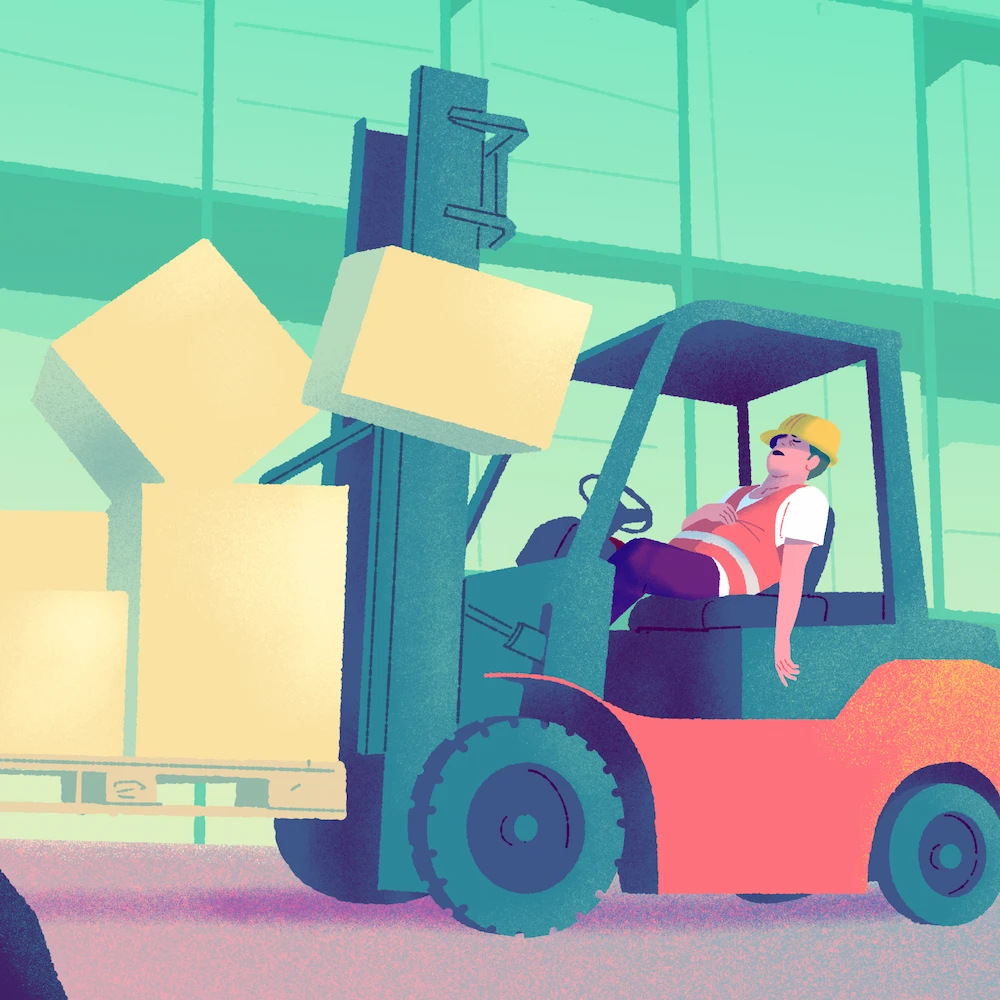Did you know that all tips and gratuities are taxable? This guide for service industry workers in Canada covers everything you need to know.
Which tips you need to declare and how, why you should declare tips, and the penalties for not declaring tips.
To help employers, we also cover tip tracking software, which both employers and employees can use to easily track tips to comply with Canadian income tax rules.
What Counts as a Tip?
Under Canadian law, a “tip” (or gratuity) is any payment a customer voluntarily makes to a service provider, such as a waiter, bartender, or hairstylist, on top of the amount charged for the service.
3 Things Service Workers Need to Know About Tips
- Tips are not legally required, but often given as a reward for good service.
- In most Canadian provinces, tips belong to the employee who receives them, unless there are specific workplace policies in place like tip pooling or tip sharing arrangements. Here is a free downloadable tip pooling worksheet template.
- Tips and gratuities in Canada are considered taxable income by the Canada Revenue Agency (CRA). That means you must report all tips on your income tax returns.
Rules for Tips by Province and Territory
- Alberta: No specific legislation on tips; employers can implement tip pooling.
- British Columbia: Employers cannot take a portion of tips; fair distribution required.
- Manitoba: No specific rules on tips or gratuities; employers can set their own policies.
- New Brunswick: Employers cannot withhold tips; employers can implement tip pooling.
- Newfoundland and Labrador: Employers cannot withhold tips, but may in some cases make deductions for statutory deductions.
- Nova Scotia: Employers cannot withhold tips or treat tips as employee wages.
- Ontario: Guidelines exist for tip pooling; employers must distribute pooled tips fairly.
- Prince Edward Island: Employers cannot withhold tips; employers can implement tip pooling.
- Quebec: Service charges may be treated differently than tips. Employers must distribute tips fairly.
- Saskatchewan: No specific rules on tips or gratuities; employers can set their own policies.
- Yukon: Employers cannot withhold tips or treat tips as employee wages.
- Northwest Territories: Employers cannot treat tips as employee wages.
- Nunavut: General employment standards apply; practices may vary.
Types of Tips
In Canada, tips are categorized into two main types: direct tips and controlled tips.
Direct Tips
- Tips given directly to you by the customer.
- Can be in cash or electronic payment (e.g., credit/debit).
- Examples: cash left on the table for a server or given to a barber after a haircut.
📌 Employees are responsible for tracking these tips and reporting them with their income; important to keep accurate records.
Controlled Tips
- Tips collected and redistributed by your employer.
- Often pooled together and distributed based on a system.
- For example, restaurants may divide tips at the end of a shift or by job role.
📌 Employers are responsible for tracking, managing, distributing and reporting these tips, withholding necessary payroll taxes (CPP, EI).
Are Tips Taxable in Canada?
Yes, tips are considered taxable income in Canada. Whether you receive tips in cash, through credit or debit card transactions, or as part of a tip-sharing arrangement, the Canada Revenue Agency (CRA) requires you to report them as part of your income.
How Are Tips Taxed?
The CRA treats tips like regular employment income. That means they are subject to the same tax rules as wages or salaries. This includes:
- Federal and provincial income taxes
- Canada Pension Plan (CPP) contributions
- Employment Insurance (EI) premiums
Employer Responsibilities & Record Keeping
In Canada, the employer’s responsibility regarding tips primarily involves managing and reporting controlled tips. These are tips collected by the employer (often in a pooled system) and redistributed to employees based on hours worked, role, or other factors.
Employers are responsible for:
- Reporting controlled tips on the employee’s T4 slip, along with regular wages.
- Deducting appropriate taxes, Canada Pension Plan (CPP) contributions, and Employment Insurance (EI) premiums from the tips before paying them out to employees.
Automate allocations with a tip pooling calculator.
Employers are not responsible for:
- Reporting direct tips that you receive directly from customers, such as cash left on a table or added to a bill.
Employee’s Role in Declaring Tips
The CRA expects workers to include all earned tips in their taxable income.
Since employers do not manage or track direct tips, the onus falls on the employee to:
- Keep detailed records of daily direct tips earned, both in cash and electronically.
- Report the total amount of tips on their income tax return.
You’re also responsible for determining whether the tips you receive are considered pensionable or insurable earnings, or both.
This depends on whether:
- Your tips were paid by the employer (controlled tips)
- Your tips were paid by the client (direct tips)
- Your tips are declared tips (in Quebec only)
How to Report Tips on Your Tax Return
The Government of Canada provides clear information on how to report tips and gratuities.
Step-by-Step Guide
1. Track your tips
Keep detailed records throughout the year. You can use a simple notebook or tools like mobile apps, spreadsheets, or even your employer’s tracking system to streamline the process.
2. Include tips in your total income
When filing your tax return, include all tips as part of your total income. On the T1 General Form, tips are declared in the same section as your regular employment income:
- Report controlled tips (pooled and distributed by the employer) on the income reported on your T4 slip.
- For direct tips, add the total amount of tips you tracked during the year under “Other Employment Income” in the appropriate box on your T1 General Form.
3. Include any deductions
You may also be eligible for certain tax deductions, which can help reduce your taxable income. For instance, if you incur work-related expenses, such as purchasing uniforms, tools, or other necessary equipment for your job, these costs may qualify as deductions.
Always keep receipts and detailed records of these expenses, as you may be able to claim them when filing your taxes.
What Happens If You Don’t Declare Tips?
Since tips are considered taxable income, the CRA expects you to report all earnings accurately. Failing to declare tips can lead to serious consequences.
Penalties for Failing to Declare Tips
1. Interest on unpaid taxes
If you fail to report tips, the Canada Revenue Agency (CRA) may discover unreported income during a tax review or audit. If this happens, the CRA will charge you interest on the unpaid taxes from the date they were due.
This interest accumulates daily, increasing the amount you owe. The longer you delay correcting the issue, the higher the cost.
2. Audits
Failure to declare tips could trigger an audit by the CRA. An audit is an in-depth review of your financial records to verify that you have reported all sources of income, including tips.
Audits can be time-consuming and stressful, as the CRA may scrutinize your bank statements, employer records, and other financial documents to identify any discrepancies. If the CRA finds that you’ve underreported income, you may be required to pay back taxes along with additional penalties.
3. Penalties
The CRA can impose significant penalties for underreporting income, including tips. If you knowingly fail to declare a portion of your income, you may face a penalty of 50% of the tax owed on the unreported tips.
For repeat offenders, the penalties can be even more severe, and in extreme cases, legal action may be taken.
Benefits of declaring tips
Properly declaring your tips not only keeps you compliant with the Canada Revenue Agency (CRA), but it also helps you build a stronger financial foundation for the future. Here are some of the main benefits of reporting tips:
Higher Canada Pension Plan (CPP) Contributions
- Declaring tips increases your total income, leading to higher CPP contributions.
- Reporting more income, including tips, means you’ll receive better CPP benefits at retirement.
Higher Employment Insurance (EI) Benefits
- Reporting tips impacts EI benefits, which are based on reported income.
- Higher reported income can lead to increased EI benefits during unemployment, sickness, or leave.
Better Credit and Financial History
- Declaring all income, including tips, improves your financial records.
- Lenders look at your total income if you apply for a loan, mortgage, or credit card.
- Higher reported income improves loan approval chances and interest rates.
How Employers Can Help Service Workers with Tip Reporting
Employers play a vital role in helping service workers accurately report their tips and comply with tax regulations.
By providing the right tools and fostering a transparent workplace culture, employers can ensure that both employees and the business stay compliant with Canada Revenue Agency (CRA) rules.
1. Give employees access to tip tracking tools
Using employee management software will make it easier for both your employees and you as an employer to track employee hours worked and tips earned. The software will automatically track shifts, wages, tips allowing employees to log their earnings in real-time.
Day-to-day gains
- Reduces administrative tasks, reduces the risk of human error, and helps maintain accurate records throughout the year for both employer and employee.
- Employers can generate reports on controlled tips and provide accurate information for tax purposes, ensuring compliance with CRA regulations.
- Simplifies the tax-filing process for employees but also helps employers avoid legal issues related to unreported income.
- Employers can foster a more efficient and transparent system for tip reporting, benefiting everyone involved.
2. Encourage transparency around tips
Create a culture of transparency and honesty around tip reporting. Encouraging open discussions about the importance of reporting tips and the potential legal consequences for underreporting can help foster compliance across the workplace.
Tips for promoting tip transparency
- Educate employees on their tax obligations, the importance of declaring all tips, and the long-term benefits of reporting income accurately. This can be done through employee training sessions or informational materials.
- Create an honest and supportive work environment: Help make employees feel comfortable about discussing their earnings and tips without fear of judgment or pressure. Set an example by adhering to proper reporting practices, ensuring that pooled and controlled tips are managed fairly and transparently.
Accurate Tip Reporting: Essential for Employers and Employees
As a service industry worker, it’s always in your best interest to accurately track, record and report every tip you earn. As an employer in the service industry, you can support your employees by using good tools. It will simplify tracking employee hours and tips to ensure compliance.
Do you get taxed on tips in Ontario?
Yes, tips are taxable income in Ontario, and you are required to report them to the Canada Revenue Agency (CRA) when filing your taxes.
Direct tips given to you by customers and controlled tips distributed by your employer both count as income. Controlled tips are typically included on your T4 slip by your employer, so you don’t need to report them separately. Direct tips, however, must be tracked and reported by you.
Do you get taxed on tips in Quebec?
Yes, tips are taxable income in Quebec, and you must report them to both the Canada Revenue Agency (CRA) and Revenu Québec when filing your taxes.
Controlled tips are usually included on your T4 slip (federal) and RL-1 slip (Quebec) by your employer, so you don’t need to declare those again. Only direct tips that are not shown on those slips must be recorded and reported by you. In addition, Quebec law requires that employees in certain sectors (like restaurants) report at least 8% of their sales as tips, even if they actually earned less. Employers may adjust your payroll to reflect this minimum.
Do you get taxed on tips in British Columbia?
Yes, tips are considered taxable income in British Columbia, and you are expected to report them to the Canada Revenue Agency (CRA) when you file your return.
Your employer generally includes controlled tips on your T4 slip. You’re responsible for keeping track of any direct tips you receive and ensuring they are reported on your tax return.
Do you get taxed on tips in Alberta?
Yes, tips are taxable income in Alberta, and you have to report them to the Canada Revenue Agency (CRA) when filing your taxes.
If your employer distributes pooled or controlled tips, those amounts are usually already included on your T4 slip. Any direct tips that aren’t included on the T4 are your responsibility to track and report.
Do you get taxed on tips in Manitoba?
Yes, tips are taxable income in Manitoba, and they must be reported to the Canada Revenue Agency (CRA) as part of your annual tax return.
Your employer typically includes controlled tips on your T4 slip, so you don’t have to report those yourself. Direct tips that don’t appear on the T4 must be tracked and declared by you.
Do you get taxed on tips in Saskatchewan?
Yes, tips are considered taxable income in Saskatchewan, and you are required to report them to the Canada Revenue Agency (CRA).
Controlled tips handled by your employer are usually included on your T4 slip and don’t require additional reporting by you. However, direct tips that customers give you directly need to be tracked and reported.
Do you get taxed on tips in Nova Scotia?
Yes, tips are taxable income in Nova Scotia, and you must report them to the Canada Revenue Agency (CRA) when filing your tax return.
Employers generally include controlled or pooled tips on your T4 slip. You are responsible for recording and reporting any direct tips that don’t appear there.
Do you get taxed on tips in New Brunswick?
Yes, tips are taxable income in New Brunswick, and you need to report them to the Canada Revenue Agency (CRA).
Any controlled tips distributed by your employer are usually reflected on your T4 slip. You should also keep a record of direct tips you receive, as you are responsible for reporting those yourself.
Do you get taxed on tips in Newfoundland and Labrador?
Yes, tips are considered taxable income in Newfoundland and Labrador, and you are required to include them when filing your taxes with the Canada Revenue Agency (CRA).
Controlled tips are typically reported by your employer on your T4 slip, so you don’t need to take further action for those. Any direct tips you receive need to be tracked and included in your income.
Do you get taxed on tips in Prince Edward Island?
Yes, tips are taxable income in Prince Edward Island, and you must report them to the Canada Revenue Agency (CRA) as part of your annual tax filing.
Controlled tips are generally already accounted for on your T4 slip by your employer. You are responsible for keeping track of direct tips and reporting them yourself.
Do you get taxed on tips in Northwest Territories?
Yes, tips are taxable income in Northwest Territories, and you are required to report them to the Canada Revenue Agency (CRA).
Controlled tips, if any, are normally shown on your T4 slip. Any direct tips you receive directly from customers must be tracked and declared when you file your taxes.
Do you get taxed on tips in Yukon?
Yes, tips are considered taxable income in Yukon, and you need to report them to the Canada Revenue Agency (CRA) when filing your return.
Controlled tips distributed by your employer should appear on your T4 slip. Any direct tips you receive separately need to be recorded and reported by you.
Do you get taxed on tips in Nunavut?
Yes, tips are taxable income in Nunavut, and you are expected to report them to the Canada Revenue Agency (CRA).
Your employer typically includes controlled tips on your T4 slip. You are responsible for tracking and reporting direct tips you receive that are not reflected there.











